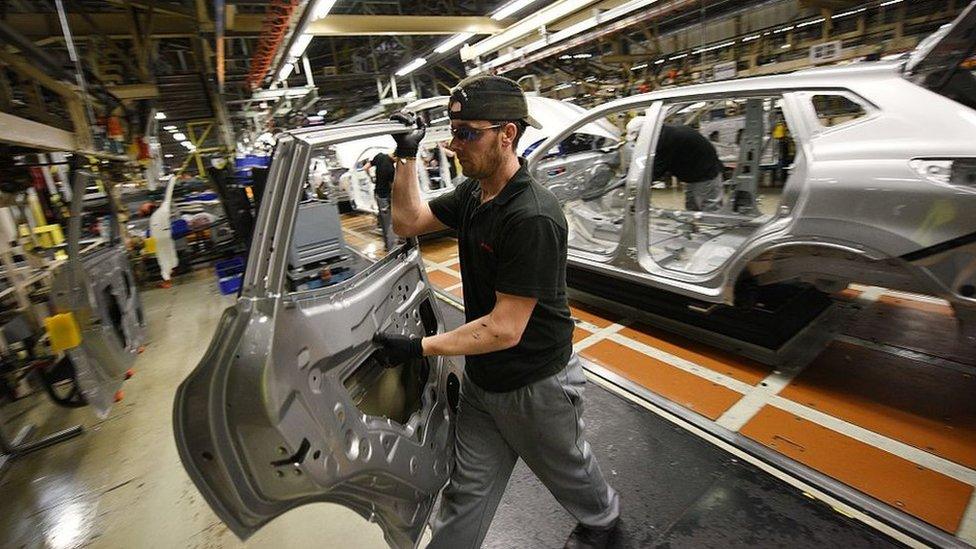Five reasons the car industry is struggling
- Published
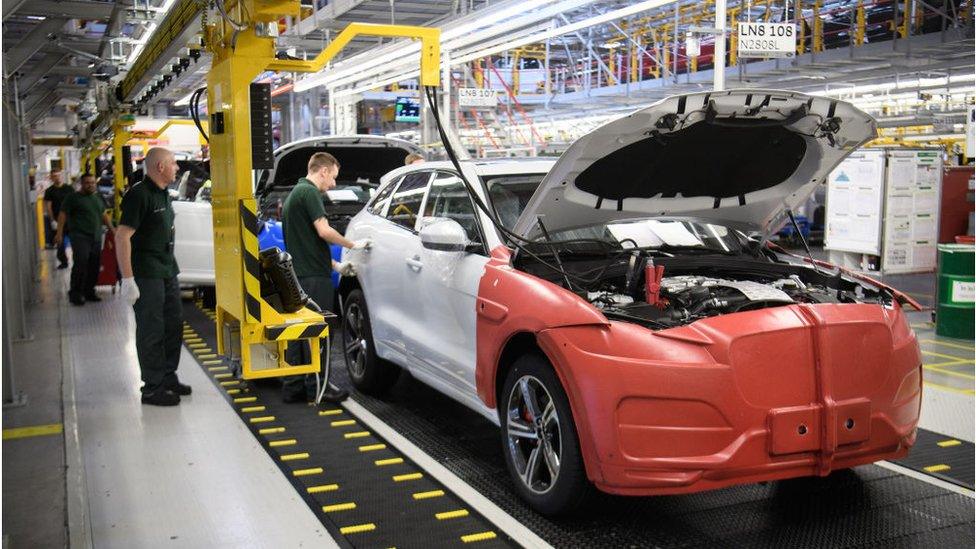
Jaguar Land Rover is cutting jobs
News that Ford plans to close its Bridgend plant next year, with the loss of 1,700 jobs, is just the latest in a series of blows for the UK car industry.
In February, Honda said it would close its Swindon plant by 2021, with the loss of about 3,500 roles, while Jaguar Land Rover and Nissan are also cutting production and jobs.
It comes as carmakers around the globe struggle with a range of challenges, while consumers are buying fewer cars.
So what's holding manufacturers back?
1. Falling demand
After years of strong growth, global car sales were broadly flat in 2018, largely because of a slump in demand in the world's biggest market, China.
It has hurt carmakers who had been doing brisk business in China, says Dave Leggett, editor of the car industry website just-auto.
"Trade tensions between Washington and Beijing have hit confidence in China generally. The economy was slowing down anyway, but that accentuated it," he says.
Jaguar Land Rover has blamed its poor performance recently on falling Chinese demand, while Ford has pulled plans to sell a Chinese-made Ford Focus in the US because of the impact of trade tariffs.
The Chinese slump comes as demand in two other giant car markets, Western Europe and the US, has also slowed amid waning consumer confidence.
"It is creating more competition, which makes it tougher for everyone," Mr Leggett says.


2. Emissions woes
In Europe, emissions issues are also causing headaches for car firms.
Air quality concerns and taxation changes have led to a big drop-off in diesel sales, contributing to a 7% fall in new car registrations in the UK in 2018.
More challenging, perhaps, is the introduction of tough new CO2 emission standards, designed to tackle global warming, that make it much more expensive to build cars.
From 2021, manufacturers will face big fines in the EU if their fleets break agreed emissions limits, and these targets will get progressively tougher.
"Carmakers have to add on average €1,000 of content to cars to make them comply with the new rules," says Arndt Ellinghorst, an automotive industry analyst at Evercore ISI.
"It means consumers will be less inclined to buy, which only adds to the general slowdown in consumer confidence."
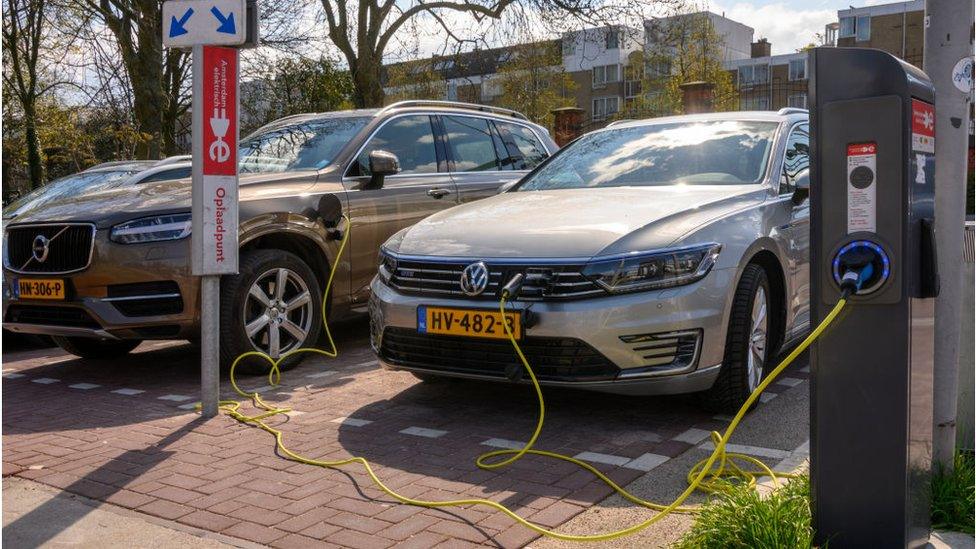
A lack of charging infrastructure is 'holding the electric car market back'
3. The electric challenge
To get their emissions levels down, carmakers are also going to need to sell a lot more electric vehicles, but there are big obstacles in the way.
"A lot of carmakers are not ready to deliver electric vehicles at the right quantities," says Mr Leggett. "They need to change their operations and gear the cars much more to a mass market, but that requires investment."
The other side of the problem is that the market isn't quite ready for electric cars.
Global sales of battery electric cars surged 73% in 2018 to 1.3 million units, but that was still just a fraction of the 86 million cars sold overall.
According to Dr Jonathan Owens, supply chain and logistics expert at the University of Salford Business School, one issue is the lack of charging infrastructure on roads in Europe and the US, although he says China is making great strides in this area.
Another is about the limited range of some mid to lower-market electric cars.
"Ford has had an electric Ford Focus since 2011, but the range is hopeless compared to competitors at less than 100 miles," Dr Owens says.
"And the VW golf can only drive for about 120 miles."
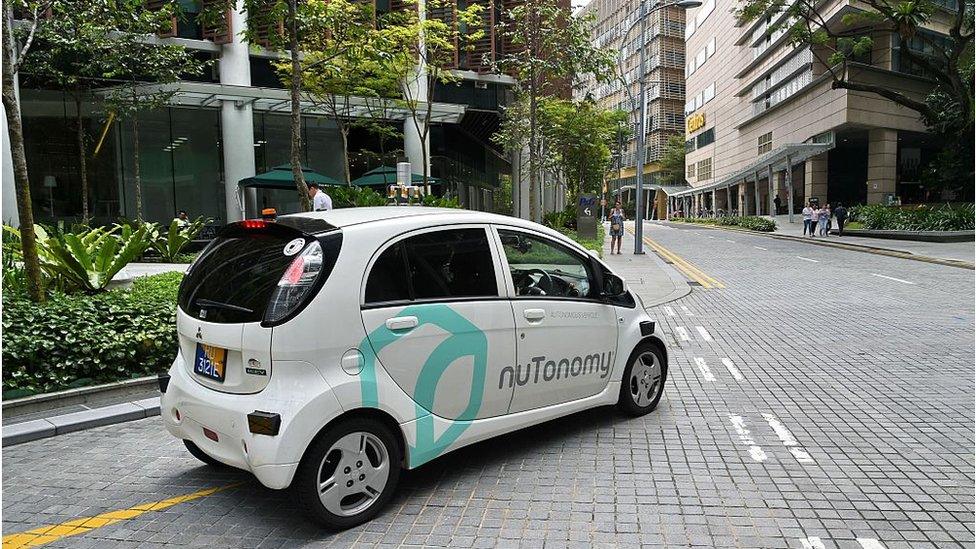
Could driverless cars change our relationship with vehicle ownership?
4. A shift away from ownership?
Other worries are weighing on carmakers' minds, too - one being the emergence of new technologies that could radically change our relationship to car ownership.
If driverless cars go mainstream over the next 15 years, Mr Leggett says, then many of us might opt to share or rent rather than own our own vehicles.
That could slash the cost of travel per mile, making ownership seem much less appealing.
Traditional car companies are having to fight to stay relevant as technology giants such as ride-hailing firm Uber and Google's driverless car business Waymo dive into this market.
However, the research and development (R&D) costs a lot and so many are teaming up to spread the risk.
Recent examples include Ford and Volkswagen's agreement to "investigate" ways of working on electric and autonomous vehicles together, while Honda invested $2.75bn (£2.1bn) in rival General Motors' driverless unit with a view to launching a fleet of unmanned taxis.
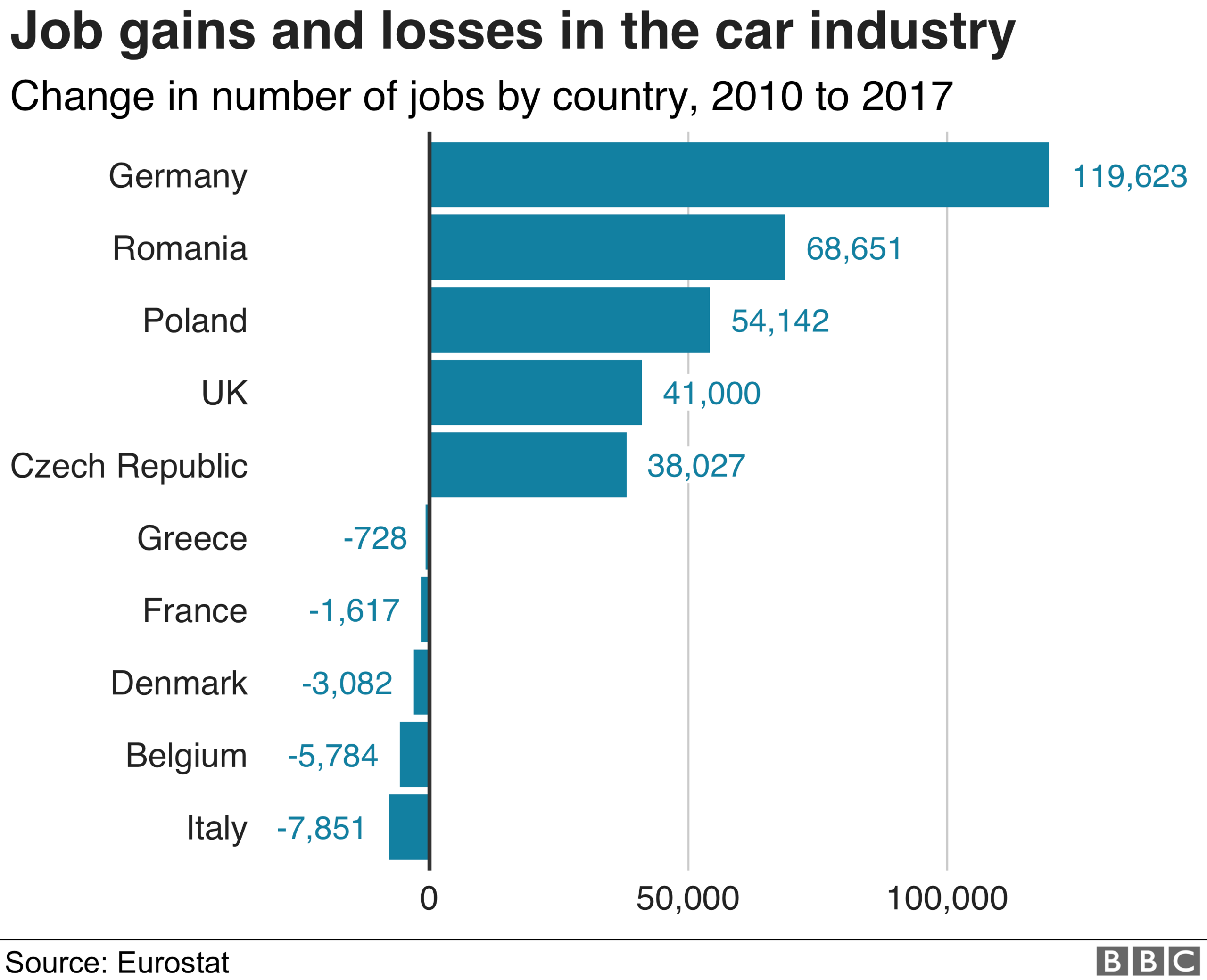
Jobs in the UK car industry grew between 2010 and 2017 amid strong demand
5. Brexit
In the UK, car firms have been warning repeatedly of the dangers of a no-deal Brexit since the EU referendum in 2016.
And investment in the UK car industry has fallen in the last two years, slumping 46.5% in 2017 alone.
The problem, analysts say, is that British car plants rely heavily on components imported from the EU, while most of the finished cars they produce are exported to the European mainland.
"If we are going to have uncertainty in the form of tariffs, then that will cause bottlenecks and delays which will make UK plants less economic," says Dr Owens.
However, Mr Leggett stresses Brexit is only one of many factors troubling the UK industry.
"Firms are seeing lower exports to China, and sluggish sales in Europe. The UK economy isn't that buoyant at the moment too."
- Published6 June 2019
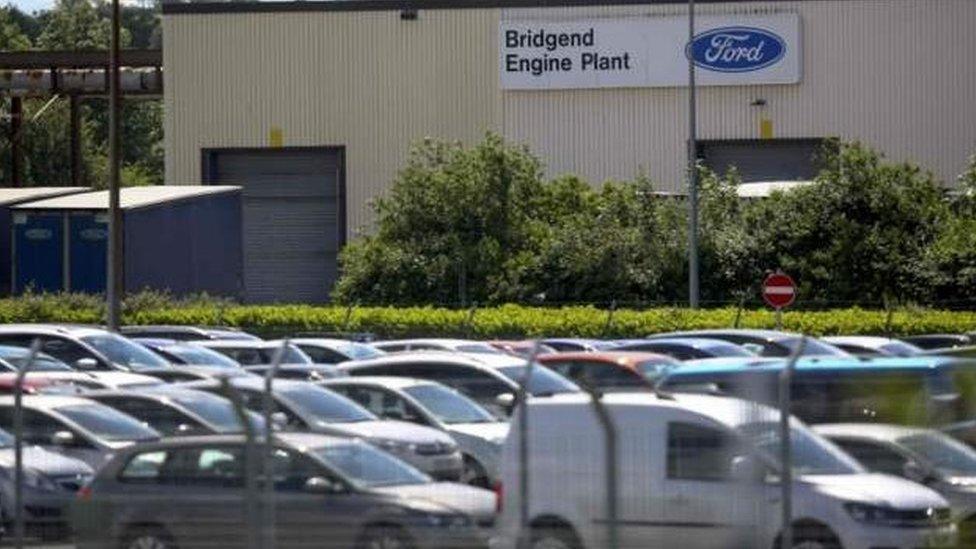
- Published28 February 2019

- Published3 February 2019
